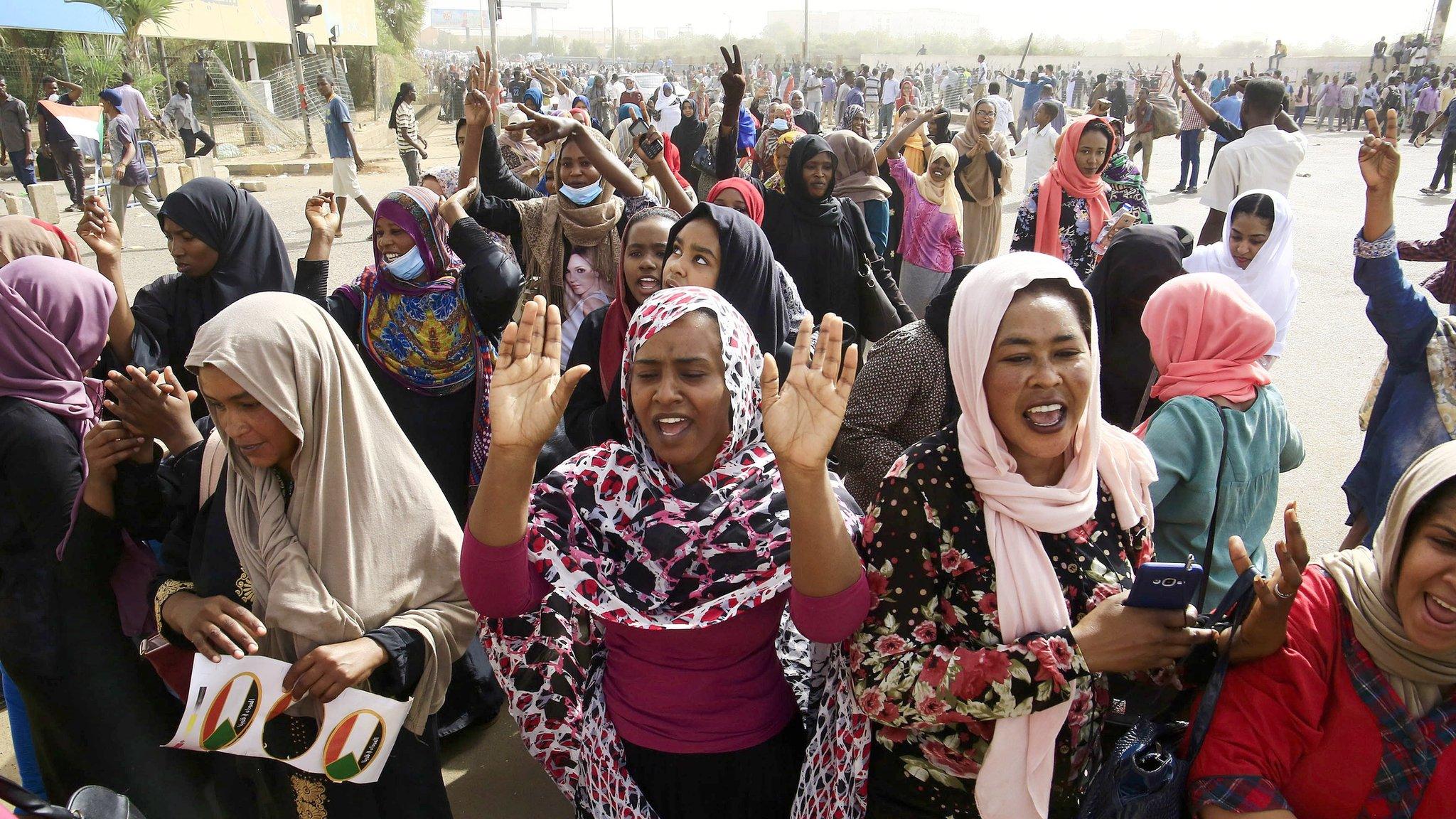Sudan stand-off after Omar al-Bashir ousted
- Published
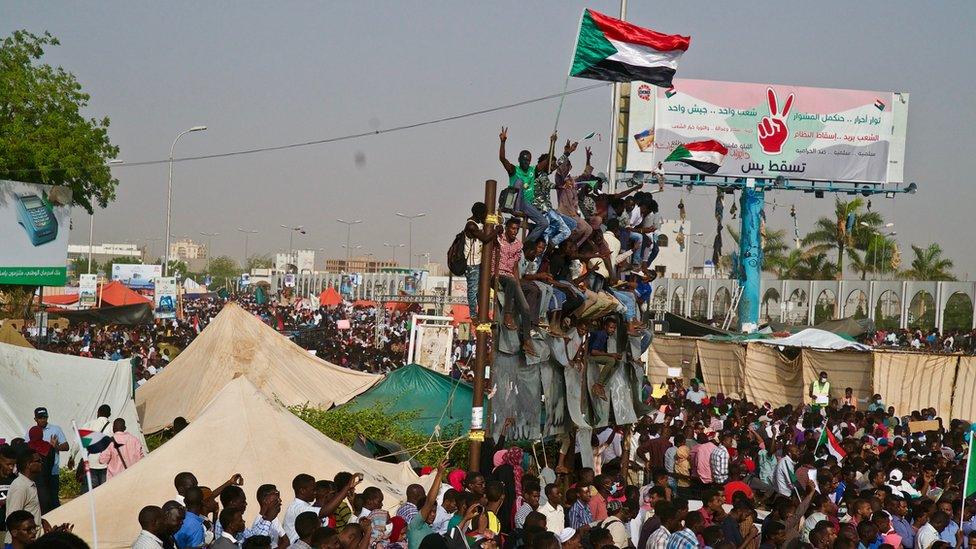
Sudan's military ousted long-time leader Omar al-Bashir in a coup
A week after the fall of Omar al-Bashir the street protests in the heart of Khartoum are as loud and energetic as ever.
In the searing heat, the music and the speeches blare from the banks of speakers as the people who have already achieved so much in Sudan push for even greater and lasting change.
While the military council is offering what it considers to be concessions, the protesters want more guarantees that the gains they have made so far will not be lost.
They have barricaded themselves into a large area of central Khartoum near the military headquarters, creating traffic chaos which is testing people's patience.
But their presence and the pressure they are applying are pivotal to the discussions going on behind the scenes as politicians and technocrats furiously work towards a civilian transition.
'Protesters won't move until they get real change'
Building a functioning, democratic state after 30 years of military rule does not happen in a week, and the opposition is far from being one cohesive unit.
Like in Egypt the military here is strong. Its generals will not give up power easily as they have a great deal to lose, even if they give the impression of moving towards democracy.
Who are the protesters?
The Sudanese Professionals Association has led the street protests and is key to the talks with the military council over a transitional civilian authority.
They are part of an umbrella group known as the Forces for Freedom and Change which has been meeting the ruling military council.
Together with a political opposition group known as Sudan Call, the leftist Consensus Forces, an offshoot of the Unionists, and representatives of civil society, they provide a strong unified opposition block.
But 30 years of division and in-fighting, alliances and rivalries within the traditional political parties makes it harder to put on a truly united front against the military council.
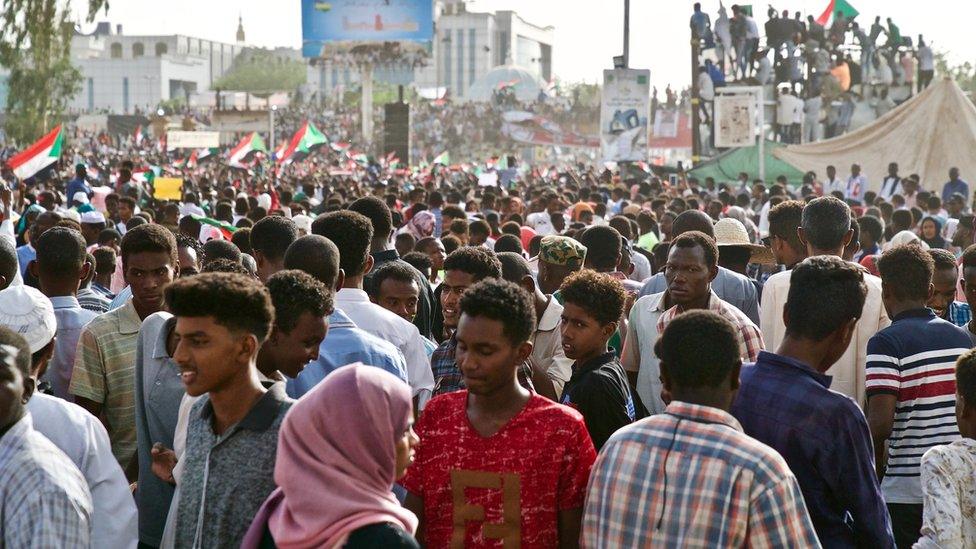
Demonstrators have vowed to stay on the streets until there is a move to civilian rule
One of those at the table is the University of Khartoum's Professors' Initiative.
Since young people began to drive the demonstrations in December, hundreds of academics have been involved - secretly at first - bringing experts together to plan the transition.
"It was a surprise for everyone that it was started by the youth. We think they don't know much about politics and that they sit in restaurants drinking coffee or playing computer games, but they know a lot about politics and history," said Intisar Soghayroun, an archaeology professor.
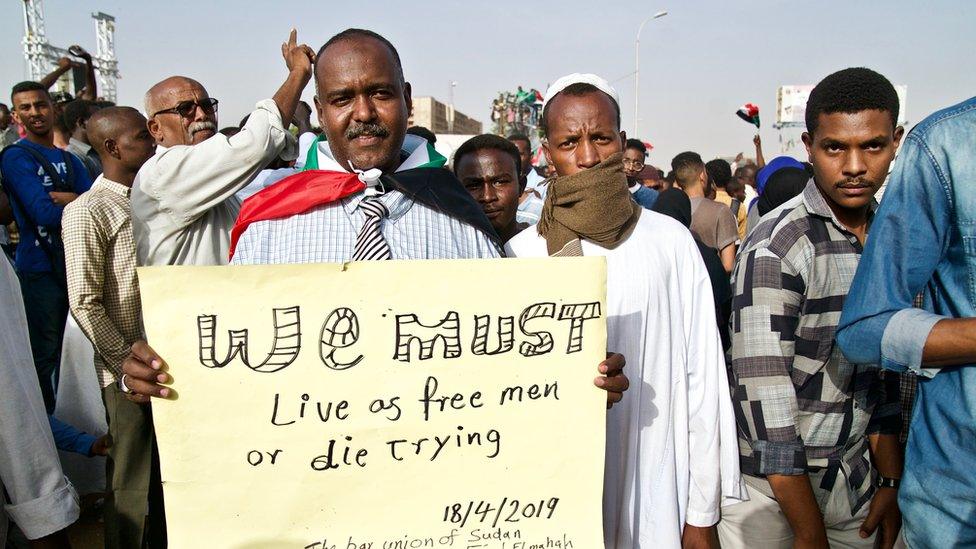
Months of protests led to the ousting of President Bashir
She says they began to write papers, gather experts and academics and set up working groups looking at key issues like the economy, infrastructure and agriculture.
They are urging the protesters to stay on the streets to maintain pressure on the transitional military council which Prof Soghayroun believes will allow change.
"At the beginning we weren't sure, but now they are making some steps towards convincing people and gaining trust," she said.
"All the people in the sit-in do not trust this government because of 30 years of violence, mischievous work concerning economy, health, education and the collapse that happened in the Sudan."
Can they remain united?
While the professors plan a four-year interim period run by technocrats they have the established politicians to deal with.
"All the groups who are under the change and freedom - if they can come together, then in one or two days they can decide who is going to be the prime minister," said Prof Soghayroun.
"But what we want is all the other parties that ruled or had been part of the ruling government before - we don't want them in power during the transitional period."

More about the Sudan protests:

Mohammed Usman Yahya is from the Unified Unionist Party and believes they are united.
"This revolution represents the entire Sudanese people. All the parties agreed to be united to the declaration of change and freedom. Consider it the voice of all Sudanese people," he said.
"We want the military council to deliver the authority to a civilian government and protect the Sudanese nation and maintain internal security."
The ability of the opposition to create a strong, united front and have a clear vision of what a civilian-run Sudan could look like will be crucial to the success of negotiations with the military.
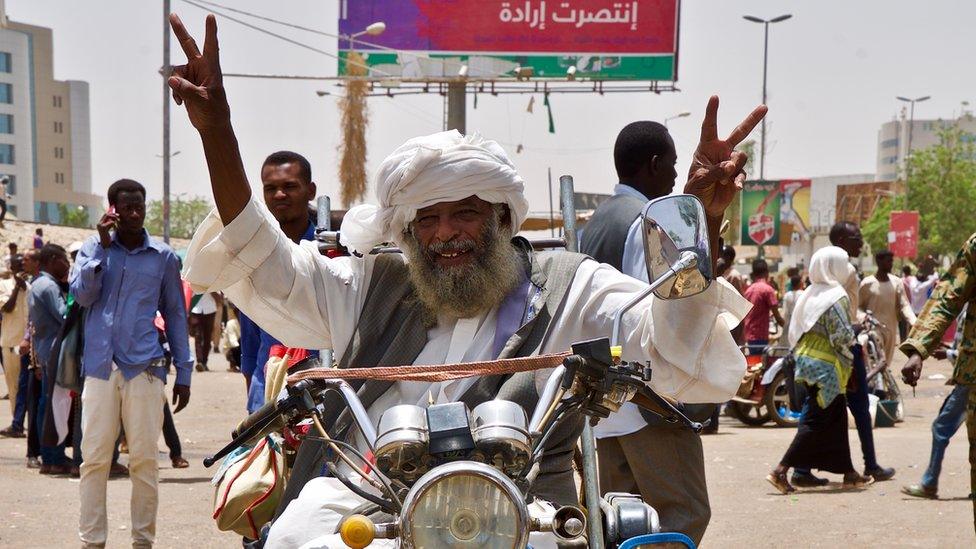
The Sudanese Professionals Association has led the street protests
There is also international pressure for different outcomes.
The African Union has given Sudan two weeks to establish civilian rule. China, Russia, Saudi Arabia and the UAE favour the stability of a military council, but the troika of the US, Norway and the UK want a move towards democracy.
Will the military listen to the protesters' demands?
"Sudan is at a moment of potentially huge historic change and what we're looking for is this change to be positive and that means rule in Sudan returning back to civilians," said the British Ambassador to Khartoum, Irfan Siddiq.
"The military is currently in control and we are really keen to see civilians take over this transition.
"The civilian leadership of the protest movement have been very clear about how they want to form a civilian council, parliament and government. I think this is something the military council needs to listen to."
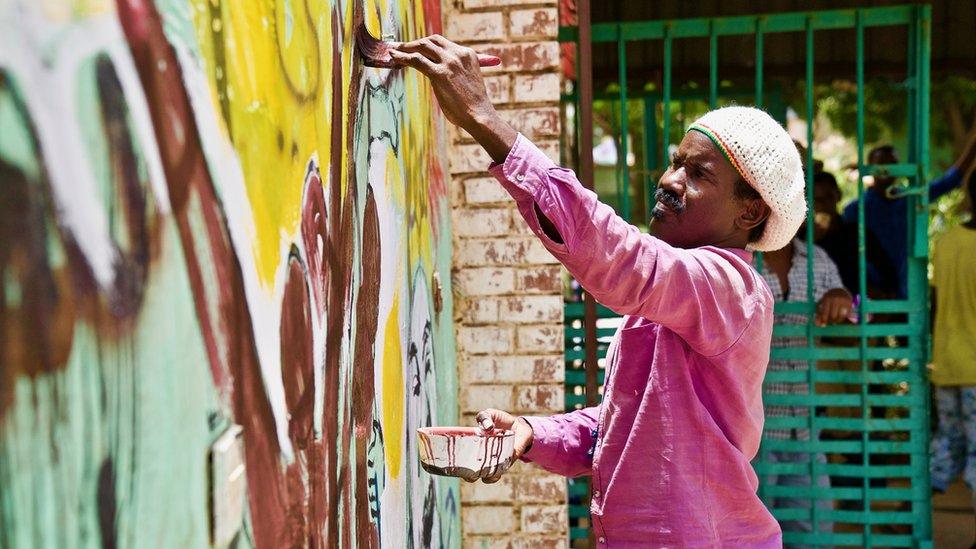
Protesters and opposition groups are in talks with the military
The call for a million people to join the protest was an attempt by organisers to give more momentum to the movement.
Huge numbers of people have been marching to the area surrounding the military headquarters - passing through numerous barricades controlled by demonstrators.
But there's little sense among the crowds that the changes announced by the military council are real concessions or compromises.
People want to see proof that former President Omar al-Bashir is in jail, and that justice will come to those who carried out atrocities under his regime.
"We cannot accept that justice has been served unless we see former president Bashir and those 'fat cats' in his regime actually tried," said Daud Ismael.
"We need a fair and neutral justice body to deal with them; otherwise we want them sent to The Hague," he added. referring to the International Criminal Court.
- Published15 April 2019
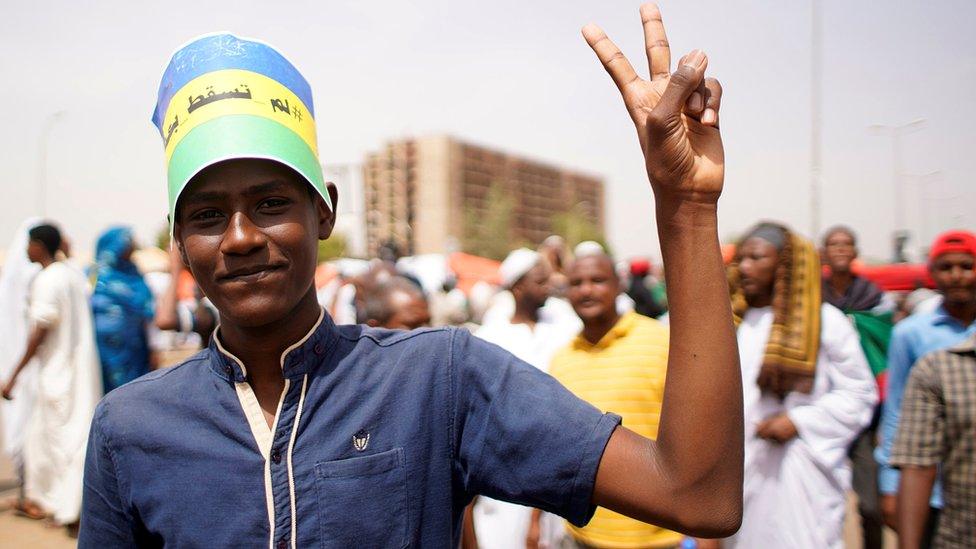
- Published11 April 2019
